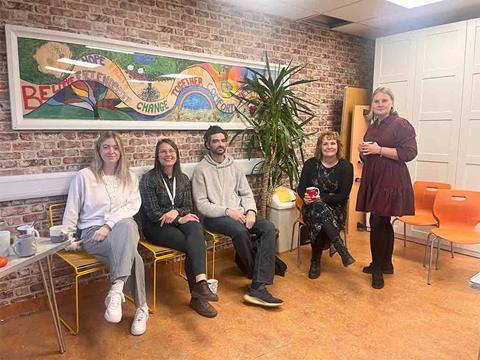
Sheffield Mind, which delivers mental health services for children, young people and adults across the city, has been awarded menopause-friendly accreditation.
The accreditation, established by Henpicked: Menopause In The Workplace, is achieved following an assessment by an independent panel. Employers have to demonstrate effectiveness in culture, policies and practices, training, engagement and working environment.
Sheffield Mind was recognised due to the work it undertook during its menopause-friendly journey, which included addressing the stigma associated with the condition, paving the way for open and constructive conversations that involve everyone, as well as establishing a menopause-friendly working group that comprises all genders and ages.
Within the workplace, the employer has put hygiene baskets the toilet areas and established a dedicated wellbeing room. Before setting up assistance, it consulted with employees to ensure it offered the right kind of support.
Sheffield Mind introduced these initiatives because it believes that supporting employees during the menopause gives them the best opportunity to continue in work. It hopes that by understanding more about menopause, staff can bring their learning and empathy to work.
It also recognises that a stable and happy workforce is a productive one and that supporting staff is not only the right thing to do, but also makes economic sense.
Margaret Lewis, chief executive officer at Sheffield Mind, said: “Being menopause friendly is very important to us [because], while menopause itself is not a mental health issue, changes in hormones during menopause can affect mental health. Furthermore, the range of physical symptoms [an individual] might be experiencing can lead to feelings of anxiety or stress, loss of self-esteem and confidence, low mood and feelings of sadness.
“We’ve thoroughly enjoyed the journey to menopause-friendly accreditation. It’s been hard work, but we all got behind it and everyone played their part with enthusiasm, contributing ideas, delivering training, having conversations, writing blogs for our website and sitting on the working group. The process has brought us together as an organisation, which is great for staff morale.”











